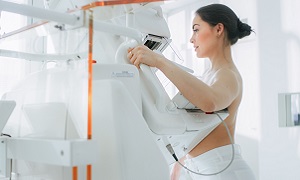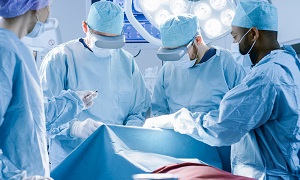Best Doctors in India for Breast Cyst Treatment
Best Hospitals in India for Breast Cyst Treatment
Hospital Highlights:
- Apollo Hospitals is a private healthcare group in India, with its headquarters based in Chennai. Established in 1983 by Dr. Prathap C. Reddy, the group offers a wide range of medical treatments and services across various specialties.
- It is renowned for emphasizing innovation and utilizing cutting-edge medical technologies into patient treatment.
- Known as India’s first corporate hospital, Apollo Hospitals is often credited for pioneering the private healthcare revolution in the country.
- With clinics and hospitals located all throughout India, Apollo Hospitals is a nationwide healthcare organization. Its presence can also be found in foreign countries.
- Preventive health examinations, medical and surgical treatment, and diagnostic centres are just a few of the services that the Apollo group provides.
- The group has several centres of expertise, including Cardiac Sciences, Neurosciences, Orthopedics, Emergency Care, Cancer Care, and Organ Transplantation.
- City: Chennai, India
Hospital Highlights:
- RIMC is a multi-specialty hospital in a sprawling area of 36 acres located in Chromepet, Chennai, Tamil Nadu, India.
- The facility has 450 beds including 130 critical care beds, 9 operating rooms, modern reference laboratories and radiology services, and is conveniently located near road, rail and air transportation.
- RIMC is led and managed by world-renowned physicians committed to healthcare.
- RIMC offers the broadest range of clinical care, education, and research. The hospital offers state-of-the-art technology and modern treatment facilities designed to provide health care at an affordable cost.
- Rela Institute is driven by patient needs, comfort and confidence.
- City: New Delhi, India
Hospital Highlights:
- Fortis Hospital in Shalimar Bagh is a multi-super specialty hospital that strives to provide world-class patient care by leaving no stone unturned.
- Fortis, Shalimar Bagh, with 262 beds and a 7.34-acre footprint, provides the best level of medical care through its team of doctors, nurses, technicians, and management professionals.
- City: Bengaluru, India
Hospital Highlights:
- Established in 2007, the Apollo Hospitals Bangalore is a 300-bed multispecialty hospital situated in Bannerghatta Road, Bangalore.
- Equipped with the state-of-the-art technology, it is a leading hospital dedicated to providing healthcare needs to patients with compassion and expertise.
- It is the first hospital to have completed the highest number of Robot Assisted Heart Surgeries in India.
- Over the years, it has successfully conducted some of the rarest medical procedures such as spinal angiolipoma excision, autologous chondrocyte implantations, and tibial tuberosity shift with MPSL reconstruction.
- The Apollo Hospitals Bangalore has the reputation of performing the greatest series of airway stents in the country.
- Additionally, the hospital is known for providing comprehensive treatment in specialties such as gastroenterology, urology, gynecology, oncology, colorectal surgery, etc.
- The “The Minimal Access Surgery Centre” (MASC), one of Apollo Hospitals, Bangalore’s premier Centres of Excellence, is devoted to the use of minimally invasive surgical procedures.
- In 2013, THE WEEK-A C Nielsen, Best Hospital Survey ranked Apollo Hospitals Bangalore as the 2nd best multi-speciality hospital in Bangalore.
- City: Mumbai, India
Hospital Highlights:
- Gleneagles Global Hospital The 450-bed facility comprises of 17-stories, housing state-of-the-art infrastructure, and advanced medical care facilities.
- The hospital offers end-to-end clinical, surgical, and diagnostic services. It is equipped with a team of eminent medical professionals aided by qualified nurses and medical staff
- The Hospital offers advanced Endoscopic procedures, Hepatobiliary and Liver Surgeries, Surgical and Medical Gastroenterology, Bariatric Surgery, and Robotic surgery.
- The hospital is a center of excellence for Orthopedics, Joint Replacement, Knee Replacement, and Hip Replacement surgery.
- City: Hyderabad, India
Hospital Highlights:
- CARE Hospitals were established in the year 2000, by CARE Group.
- The multispecialty hospital has 435 beds, including 120 critical care beds, with an annual inflow of 180000 outpatients and 16,000 in-patients.
- The hospital provides specialty medical services in Cardiology, Cardiothoracic Surgery, Pediatric Cardiology, Pediatric Cardiothoracic Surgery, Neurology, Neurosurgery, Nephrology, and Urology.
- The hospital has the first dual source, 128 slice CT scanner (for high precision cardiac imaging) – the first of its kind in south India.
- The hospital offers a wide range of accommodation facilities for the convenience of its varied patient base, ranging from general wards to super deluxe rooms.
- City: Mumbai, India
Hospital Highlights:
- Fortis Hospital in Mulund is a 315-bed multi-speciality tertiary care hospital with five JCI accreditations that offers a wide variety of diagnostic and treatment services. The Fortis Hospital in Mulund delivers patient-centred treatment with cutting-edge technology, highly skilled and experienced surgeons, and paramedical staff.
- This institution houses Maharashtra’s largest multi-organ transplant centre. It is also the first heart transplant centre in western India to conduct 100 or more consecutive heart transplants in under four years. It is the only hospital in the city to have multi-organ transplants and has handled the youngest patient for angioplasty. Fortis Hospital Mulund now boasts the first advanced surgical robot in central Mumbai.
- Cardiology and heart surgery, urology, nephrology, neurosciences, orthopaedics, digestive care, emergency and critical care, and maternity care are among the services provided by the hospital.
- City: New Delhi, India
Hospital Highlights:
- Manipal Hospitals, Dwarka, is a super-specialty hospital in Dwarka, New Delhi, which is a part of Manipal Hospitals Group.
- The hospital aims to provide the best treatment on par with international standards at a fraction of the cost.
- Equipped with 380 beds, the hospital is also one of the new age hospitals which are equipped fully with state-of-the-art infrastructure, cutting-edge technology as well as the latest and advanced clinical practices. The hospital also has 13 modular Operation theatres with 118 beds which are solely meant for critical care.
- The hospital comprises internationally acclaimed doctors and highly professional and experienced hospital and medical staff who are able to provide preventive, therapeutic, and diagnostic services all under one roof.
- City: Chennai, India
Hospital Highlights:
- Located in Chennai, India, MGM Healthcare is a top multispecialty hospital that provides all medical services under one roof.
- Since its founding in 2019, MGM Healthcare has quickly become a leading national referral centre, creating several innovative flagship initiatives.
- MGM Healthcare combines next-generation medical and digital technologies to provide better patient results.
- With 12 centres of excellence, more than 400 inpatient beds, 100 intensive care unit beds, and 24/7 emergency care, MGM Healthcare leaves no chance in redefining the patient experience in Chennai.
- MGM Healthcare boasts 250+ expert doctors across 30+ departments, including Cardiology, Pulmonology, Neurology, Obstetrics & Gynaecology, and more.
- They house 12 specialized Centres of Excellence, including Neurosciences, Orthopaedics, and Multi-Organ Transplantation.
- Their team of doctors, nurses, and paramedics works together to give every patient individualized treatment.
Hospital Highlights:
- Lilavati Hospital & Research Centre is India’s premier multi-speciality tertiary care hospital and has been recognised as a global medical excellence centre.
- Lilavati Hospital & Research Centre has built an unrivalled level of trust with its patients over the years, thanks to a solid foundation that comprises cutting-edge facilities, the best medical competence, research, education, and charity endeavours.
- The hospital is quite proud of the fact that it now serves patients from all kinds of backgrounds, not just from the United States but from all around the world.
- The hospital has a total of 323 beds, one of the largest Intensive Care Units (ICUs), 12 Operation Theatres with modern amenities, over 300 consultants, and almost 1,800 personnel.
BREAST CYST
Breast cysts are round or oval structures that are filled with fluid, which form inside the breast. Around one-fourth of all breast masses turn out to be cysts. However, most breast cysts are benign and therefore they don’t increase your risk of breast cancer. Breast cysts generally don’t require any treatment unless a cyst is large or painful or uncomfortable.
Cysts may occur at any age, although they are more common for women who are in their 40s. If a cyst is large enough to be felt, then it is usually round and fairly movable under the skin. Cysts might also lead to pain, tenderness, or lumpiness in the breast. The symptoms can worsen and get better at different points of the menstrual cycle.
Symptoms
Breast cysts may develop in one or both the breasts. The following can be signs and symptoms of a breast cyst:
- A smooth and easily movable round or oval lump that might be having smooth edges
- Nipple discharge that may be clear, yellow, dark brown, or straw-colored
- A decrease in the size of the breast lump and resolution of other symptoms after a period
- Breast pain or tenderness in the area of the breast lump
- An increase in breast lump size and breast tenderness just before a period
It is important to note that having breast cysts don’t necessarily increase your risk of breast cancer. However, having cysts may make it difficult to find new breast lumps or any other changes that might require evaluation by your doctor. Your breasts may also feel lumpy and painful during menstruation, and therefore it is important to remember how your breasts feel throughout your menstrual cycle. This way, you will know if there is a change.
Normal breast tissue generally feels lumpy or nodular. However, if you feel a new breast lump that refuses to go away, or gets bigger, or persists after a few menstrual cycles, then it is important to see a doctor right away.
If you notice new skin changes on one or both of your breasts, then it is a good idea to see your doctor as well.
Causes
Each of the breasts contains lobes of glandular tissue, which are arranged like the petals of a daisy. These lobes are divided into smaller lobules that produce milk during the pregnancy and breast-feeding period. The supporting tissue giving the breast its shape is made up of fatty tissue as well as fibrous connective tissue.
Breast cysts develop due to the fluid accumulation inside the glands in the breasts.
Breast cysts are generally of two types, and are defined by their size:
Microcysts – Your doctor might see them during imaging tests, though they are too small to feel.
Macrocysts – They are large enough to be felt, and can grow to around 1-2 inches in diameter.
Diagnosis
For diagnosing your breast cancer, your doctor might need one or more of the following tests:
Breast Exam
Imaging tests
Imaging tests generally include the following:
Mammography
Breast ultrasound
This test helps your doctor in determining whether a breast lump is filled with fluid or solid. A solid-appearing mass most likely is a noncancerous lump.
Your doctor might also choose to perform a fine-needle aspiration, instead of imaging tests. During this procedure, your doctor will insert a thin needle into the breast lump, and attempt to withdraw fluid. It is often done using ultrasound to guide the placement of the needle accurately. If fluid comes out, and the breast lump goes away, then it helps your doctor to make a diagnosis immediately.
Treatment
No treatment is required for simple breast cysts, and for those that are fluid-filled and don’t cause any symptoms. Many cysts will also disappear without any treatment. If a cyst persists, feels firmer or if you notice skin changes on the skin over the cyst, then you need to discuss this with your doctor.
Fine-needle aspiration:
Fine-needle aspiration can also be used to treat your breast cyst if all the fluid can be removed from the cyst during the procedure. This results in your breast lump disappearing and your symptoms resolving.
For some breast cysts, you might need to have the fluid drained more than once.
Hormone use:
Your doctor might choose to use birth control pills in order to regulate your menstrual cycles. This may help in reducing the recurrence of breast cysts as well. But because of possible significant side effects, birth control pills or other hormone therapy is usually recommended only for those women who are suffering from severe symptoms. Discontinuing hormone therapy after menopause might also help to prevent breast cysts.














